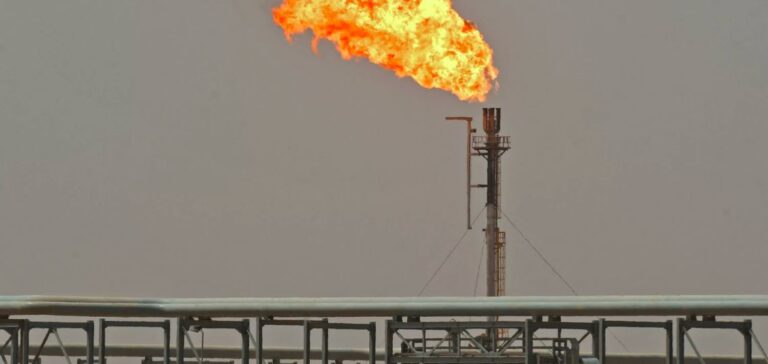Iraq launched on Sunday the testing of a new oil refinery, a project that should help the black gold-rich country to largely reduce its fuel imports, officials said.
The Minister of Oil, Ihsan Ismail, announced in a statement the start of “test operations of production units at the oil refinery in Kerbala” in central Iraq.
The project will eventually refine 140,000 barrels per day (bpd), “contributing in a short time to reduce imports and cover local consumption” of fuels, including gasoline and diesel, according to the statement.
The production of oil derivatives will begin in earnest at the beginning of 2023, the ministry had previously announced.
Iraq is the second largest country in the Opec and exports an average of 3.3 million barrels of crude oil per day. With its immense hydrocarbon reserves, black gold represents more than 90% of its income.
In a country ravaged by decades of war and conflict, where public mismanagement and endemic corruption are slowing down reconstruction efforts and the implementation of reforms, Iraq, despite its huge oil windfall, is still waiting for major infrastructure projects to materialize.
“The Kerbala refinery will supply about 20 petroleum derivatives, especially high-octane gasoline,” said a spokesman for the oil ministry, speaking on condition of anonymity.
This is “the first refinery with such production capacity to be built since the 1980s″, he told AFP.
The refinery will produce nine million liters of gasoline per day, which is “more than half” of the 15 million liters imported by Iraq, Ihsane Moussa Ghanem, deputy director of the Iraqi agency for the distribution of petroleum products told AFP.
The country, which has three refineries in operation, already produces locally half of its daily needs, or about 30 million liters, and imports the rest, he said.






















